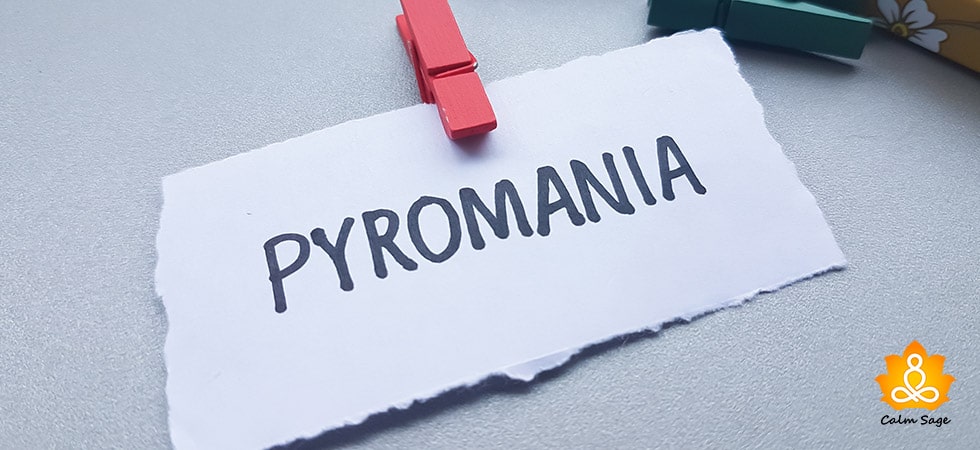The Signs Of Psychosis In Teenagers (Causes, Risks, And Treatment)

Adults often believe that what plagues them can never plague their children or the teenagers in their lives, but this is a misconception. Just like mental health disorders can affect adults, they could affect teens too, including psychosis.
Teenagers can too experience psychosis, however, just because they can experience the same disorder as their adult counterparts does not mean that they can have the same symptoms and signs as them. As symptoms of depression in teens can differ from those of adults, the signs of psychosis in teenagers can differ as well.
But, what is psychosis?
When there’s a disruption in a person’s thinking and perception, causing them difficulty in figuring out what’s real and what’s not, it can be described as psychosis. Psychosis is more of a symptom of other psychotic disorders than it can be a diagnosis.
Of course, like any other disorder, the intensity of psychosis can vary from person to person. An individual with mild symptoms of psychosis may not find it difficult to carry out their normal routine, while some simple tasks may be difficult for others with severe symptoms.
With the right intervention and treatment, the symptoms of psychosis can be managed. Below, let’s take a look at the signs of psychosis in teens, what causes psychosis in teens, and how to get the right treatment.
Also Read: Long Term Effects Of Bulimia Nervosa: Things You Should Keep In Mind
Signs Of Psychosis In Teenagers
More often than not, psychosis symptoms are left unaddressed – in adults as well as in teens. In a survey by NAMI, it was found that only 18% of people with psychosis admitted that their parents saw the warning signs and intervened.
Many parents fail to recognize the warning signs of psychosis in teenagers, and there can be many reasons for that as well. It could be the lack of self-education and awareness of psychosis that may make it difficult for parents to understand the warning signs and intervene in time.
Teenagers with psychosis can struggle to grasp reality and while symptoms may come and go, there is always the belief that it’s normal for teens to act out of character, which makes the parents, teachers, and other adults dismiss their behavior as mood swings, hormonal changes, etc.
Here are some of the common signs of psychosis in teenagers:
- Sudden mood swings
- Unusual movements
- Cold and indifferent behavior
- The inability to express emotions healthily
- Loss of interest in normal tasks and activities
- Difficulty creating and maintaining peer relationships
- Unhealthy personal hygiene
- Academic or conduct problems at school
Challenges Teens With Psychosis Might Face
Among academic, social, and relationship challenges, teens with psychosis may also struggle with feelings of confusion, embarrassment, and fear. As parents and caregivers, you need to understand that the symptoms of psychosis can develop over time and kids might not even show signs of psychosis for months (and even years).
Some common challenges a teen with psychosis might face include:
1. Hallucinations:
Hallucination is one of the most common signs of psychosis and can affect all senses. Auditory hallucinations are common and may cause a teen to hear voices inside their head telling them what to do.
Visual hallucinations are also common in teens and may include seeing things that are not truly there. Some hallucinations can be very distressing and can even feel real, such as phantom physical hallucinations, that cause a teen to feel physical sensations.
2. Delusions:
Delusions are also a common symptom of psychosis and can involve believing in a false belief that can be inconsistent with their upbringing. For example; believing that someone is spying on them or that others are conspiring against them and poisoning them.
3. Distorted Thinking:
Another common challenge that teens with psychosis may experience is disordered thinking and disorganized speech. This means that their speech and thinking contain meaningless words. This symptom can affect the teen’s focus and make them feel uneasy around others.
What Causes Psychosis In Teens?
There’s no exact cause that states why a child can be psychotic but, some factors can contribute to the manifestation of psychosis in teenagers. One such factor can be genes. Having a parent or sibling with psychosis can put the teen at a higher risk of developing psychosis than others.
Certain disorders can co-occur or even contribute to psychosis:
- Schizophrenia: Schizophrenia in teens can commonly cause hallucinations and delusions.
- Schizoaffective Disorder: This disorder could combine the symptoms of mood disorders or depression with schizophrenia.
- Schizophreniform Disorder
- Brief Psychotic Disorder
- Substance-induced Psychosis disorder
- Mood disorders
- Psychosis (Medical Conditions)
Other factors that can trigger or cause psychosis in teens can include:
- Certain medical conditions
- Infection during pregnancy
- Genetics
- Lack of nutrients during the prenatal stage
- Childhood trauma
- Stressful upbringing
What Research Says…
Did you know that a study from 2011 suggests a possible link between psychosis and marijuana use? This study followed almost 2000 teens over 10 years and found that teens who used marijuana were five times more likely to develop signs of psychosis.
Another study on the same subject suggested that smoking marijuana can cause signs of psychosis to appear years earlier. For example; a marijuana smoker can develop signs of psychosis at least 2 years before those who do not smoke marijuana.
There is not much evidence that claims the truth of the above studies, but there are enough studies that indicate a vulnerability of psychosis in teens who’re marijuana users.
Treatment For Psychosis In Teens
Sadly, there’s no cure for psychosis, but there are treatment options that can help a teen cope with adolescent psychosis. There are even programs that can help parents, caregivers, and teachers learn how to care for a teen with psychosis.
- Family Intervention
Psycho-education and family-centric intervention can help a teen and their loved ones develop communication skills and coping techniques to help ease the symptoms of psychosis as they appear. With this treatment, parents can learn how to create a safe environment for their teens and what rules they can adjust.
- Medications
Antipsychotic medications can be prescribed to help teens with psychosis symptoms ease hallucinations, delusions, and distorted thinking. The antipsychotic medications must be prescribed by a professional only and there might be certain side effects to medications, so make sure you’re aware of them.
- Psychotherapy
One-on-one therapy can also be a good treatment option for teens with psychosis. Psychotherapy and medications are a good combination and most recommended for severe psychotic disorders.
Get 20% Off for Online Therapy
Therapy approaches that can help with psychosis can include;
- Cognitive-behavioral therapy (CBT)
- Group therapy
- Animal-assisted therapy (AAT)
- Electroconvulsive therapy (ECT)
Coping Tips For Parents
If your teen is diagnosed with adolescent psychosis, then it’s normal to feel scared, confused, and overwhelmed. As a parent, you may also feel guilty and experience a sense of grief. All of these emotions are normal, and learning healthy coping techniques can help you better care for your teen with psychosis.
When it comes to supporting your teen, make sure you have a healthy and strong support system to back you up when you need comfort, advice, and access to resources. Also, it wouldn’t hurt to learn more about psychosis and how it can impact a teen’s life.
The mental health professionals you’ll be working with can be good sources of information. There are also support groups (online and offline) you can join to learn from parents living with similar experiences.
You can also reach out to a therapist of your own to help you cope and work through the concerns and frustrations you may have regarding the care you’re providing your teen. Therapy can also help you control and manage your stress so that you can care for yourself as well as your teen.
If your teen is diagnosed with psychosis or is showing signs of psychosis, then it is important to seek professional help and support. If your teen is in danger or is thinking of self-harm, then immediately contact your nearest emergency number.
I hope this blog helped you understand the signs of psychosis in teenagers and how you can help them as a parent or a caregiver.
For more, you can write to us at info@calmsage.com or DM us on social media. You can also share your thoughts and concerns in the comments below.
Take Care!




















